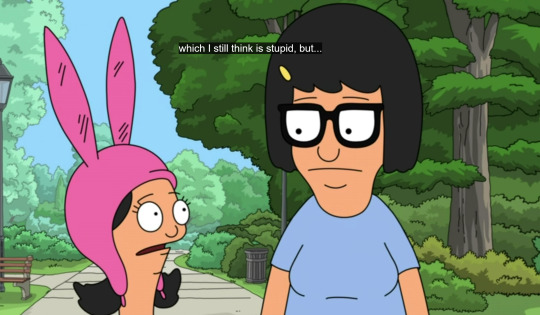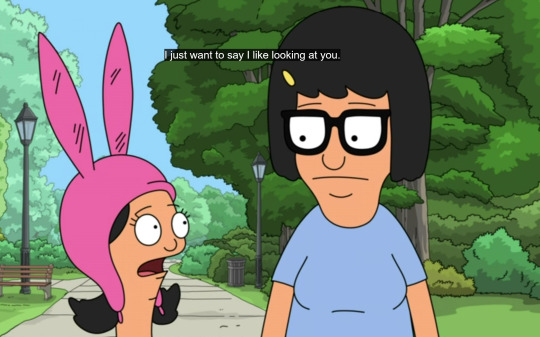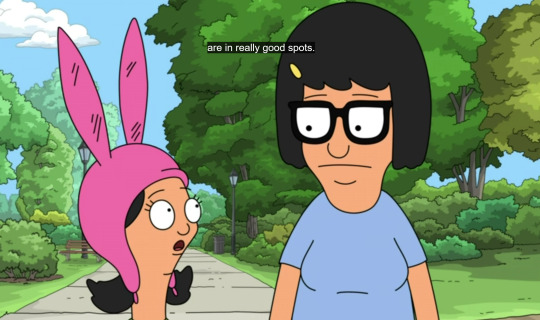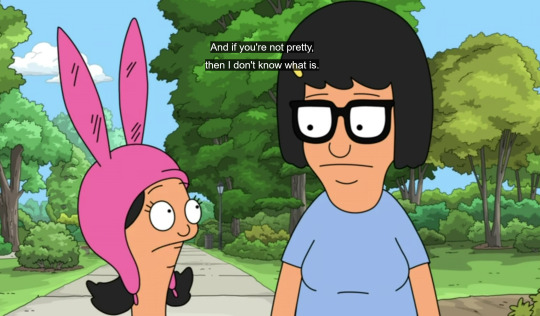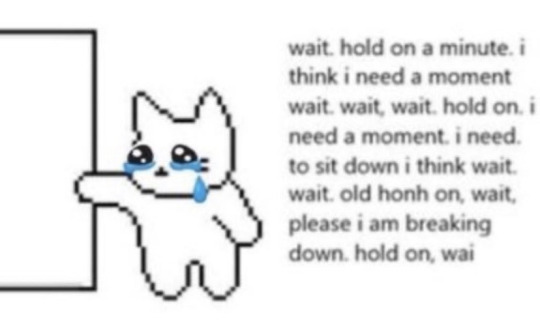Text
Tips for writing flawed but lovable characters.
Flawed characters are the ones we root for, cry over, and remember long after the story ends. But creating a character who’s both imperfect and likable can feel like a tightrope walk.
1. Flaws That Stem From Their Strengths
When a character’s greatest strength is also their Achilles' heel, it creates depth.
Strength: Fiercely loyal.
Flaw: Blind to betrayal or willing to go to dangerous extremes for loved ones.
“She’d burn the whole world down to save her sister—even if it killed her.”
2. Let Their Flaws Cause Problems
Flaws should have consequences—messy, believable ones.
Flaw: Impatience.
Result: They rush into action, ruining carefully laid plans.
“I thought I could handle it myself,” he muttered, staring at the smoking wreckage. “Guess not.”
3. Show Self-Awareness—or Lack Thereof
Characters who know they’re flawed (but struggle to change) are relatable. Characters who don’t realize their flaws can create dramatic tension.
A self-aware flaw: “I know I talk too much. It’s just… silence makes me feel like I’m disappearing.” A blind spot: “What do you mean I always have to be right? I’m just better at solving problems than most people!”
4. Give Them Redeeming Traits
A mix of good and bad keeps characters balanced.
Flaw: They’re manipulative.
Redeeming Trait: They use it to protect vulnerable people.
“Yes, I lied to get him to trust me. But he would’ve died otherwise.”
Readers are more forgiving of flaws when they see the bigger picture.
5. Let Them Grow—But Slowly
Instant redemption feels cheap. Characters should stumble, fail, and backslide before they change.
Early in the story: “I don’t need anyone. I’ve got this.”
Midpoint: “Okay, fine. Maybe I could use some help. But don’t get used to it.”
End: “Thank you. For everything.”
The gradual arc makes their growth feel earned.
6. Make Them Relatable, Not Perfect
Readers connect with characters who feel human—messy emotions, bad decisions, and all.
A bad decision: Skipping their best friend’s wedding because they’re jealous of their happiness.
A messy emotion: Feeling guilty afterward but doubling down to justify their actions.
A vulnerable moment: Finally apologizing, unsure if they’ll be forgiven.
7. Use Humor as a Balancing Act
Humor softens even the most prickly characters.
Flaw: Cynicism.
Humorous side: Making snarky, self-deprecating remarks that reveal their softer side.
“Love? No thanks. I’m allergic to heartbreak—and flowers.”
8. Avoid Overdoing the Flaws
Too many flaws can make a character feel unlikable or overburdened.
Instead of: A character who’s selfish, cruel, cowardly, and rude.
Try: A character who’s selfish but occasionally shows surprising generosity.
“Don’t tell anyone I helped you. I have a reputation to maintain.”
9. Let Them Be Vulnerable
Vulnerability adds layers and makes flaws understandable.
Flaw: They’re cold and distant.
Vulnerability: They’ve been hurt before and are terrified of getting close to anyone again.
“It’s easier this way. If I don’t care about you, then you can’t leave me.”
10. Make Their Flaws Integral to the Plot
When flaws directly impact the story, they feel purposeful rather than tacked on.
Flaw: Their arrogance alienates the people they need.
Plot Impact: When their plan fails, they’re left scrambling because no one will help them.
Flawed but lovable characters are the backbone of compelling stories. They remind us that imperfection is human—and that growth is possible.
2K notes
·
View notes
Text
Pacing Through Sentence Length in Writing
You ever notice how a scene can feel like it’s dragging or speeding up based solely on the length of the sentences? Sentence length isn't just a technical detail—it’s a pacing tool. When used right, it can control the speed and tension of your story. Here’s how:
Short Sentences = Speed, Tension, Impact
Short, snappy sentences are like quick breaths, instantly pulling the reader’s attention. They mimic fast action, nervous energy, or urgent thoughts. They create momentum. Think of action scenes or emotional moments—often, less is more.
Example: The door slammed shut. His heart raced. She was gone.
In just three sentences, you feel the urgency, the chaos, and the emotional weight of the moment. It’s all about breaking up the narrative with these quick hits to keep the reader on edge.
Long Sentences = Build-up, Reflection, Depth
On the flip side, long sentences slow things down, adding complexity, reflection, or tension. They’re great for moments of introspection, world-building, or setting a scene in rich detail. These sentences create a flow, pulling the reader into the character’s headspace or the atmosphere of the moment.
Example: The wind howled through the narrow alley, carrying the distant sounds of a city that never seemed to sleep, never seemed to rest, and in that eternal hum, he wondered, not for the first time, if he would ever find peace here or if, like everyone else who tried to escape the shadows, he would simply become another part of the city’s endless noise.
Here, the length of the sentence mimics the complexity of the thoughts—heavy, reflective, almost hypnotic. It builds tension not with action but with an overwhelming feeling of being stuck or trapped in thought.
Combining Both = Dynamic Flow
The real magic happens when you mix short and long sentences. This creates a rhythm—suddenly, a break in the flow, a quick shock, and then back to a longer, more drawn-out moment. It reflects real life: quick bursts of action or emotion followed by moments of pause or thought.
Example: He reached for the door. It was locked. His heart pounded, each beat a reminder of how badly he needed this. There were no other options. There was no way out. The key could be anywhere. And he could not afford to wait any longer.
TL;DR:
Long sentences = build tension, create depth, set mood. Short sentences = ramp up urgency, show action, make an impact. Mastering this flow is a game-changer for pacing!
2K notes
·
View notes
Text
some fucking resources for all ur writing fuckin needs
* body language masterlist
* a translator that doesn’t eat ass like google translate does
* a reverse dictionary for when ur brain freezes
* 550 words to say instead of fuckin said
* 638 character traits for when ur brain freezes again
* some more body language help
(hope this helps some ppl)
222K notes
·
View notes
Text
Writing Tips Master Post
Edit: Some posts may be deleted
Character writing/development:
Character Arcs
Making Character Profiles
Character Development
Comic Relief Arc
Internal Conflict
Character Voices
Creating Distinct Characters
Creating Likeable Characters
Writing Strong Female Characters
Writing POC Characters
Building Tension
Writing Grumpy x Sunshine Tropes
Plot devices/development:
Intrigue in Storytelling
Enemies to Lovers
Alternatives to Killing Characters
Worldbuilding
Misdirection
Consider Before Killing Characters
Foreshadowing
Narrative:
Emphasising the Stakes
Avoid Info-Dumping
Writing Without Dialogue
1st vs. 2nd vs. 3rd Perspective
Fight Scenes (+ More)
Transitions
Pacing
Writing Prologues
Dialogue Tips
Writing War
Writing Cheating
Worldbuilding:
Worldbuilding: Questions to Consider
Creating Laws/Rules in Fantasy Worlds
Book writing:
Connected vs. Stand-Alone Series
A & B Stories
Writer resources:
Writing YouTube Channels, Podcasts, & Blogs
Online Writing Resources
Outlining/Writing/Editing Software
Writer help:
Losing Passion/Burnout
Overcoming Writer's Block
Fantasy terms:
How To Name Fantasy Races (Step-by-Step)
Naming Elemental Races
Naming Fire-Related Races
How To Name Fantasy Places
Ask games:
Character Ask Game #1
Character Ask Game #2
Character Ask Game #3
Miscellaneous:
1000 Follower Post
2000 Follower Poll
Writing Fantasy
24K notes
·
View notes
Text
your writing doesn’t have to be perfect. it just has to make someone feel something.
4K notes
·
View notes
Text
Writing References: Colours
Black ⚜ Blue ⚜ Brown ⚜ Green ⚜ Grey ⚜ Orange
Pink ⚜ Purple ⚜ Red ⚜ Variegation ⚜ White ⚜ Yellow
Word Alternatives ⚜ Archaic Words ⚜ Dark
Describing Colours ⚜ Word List ⚜ Gold
Symbolisms: Colour Vitamins ⚜ "Magical" Uses
More: Notes & References ⚜ Writing Resources PDFs
262 notes
·
View notes
Text
When your Character...
Gets into: A Fight ⚜ ...Another Fight ⚜ ...Yet Another Fight
Hates Someone ⚜ Kisses Someone ⚜ Falls in Love
Calls Someone they Love ⚜ Dies / Cheats Death ⚜ Drowns
is...
A Ballerina ⚜ A Child ⚜ Interacting with a Child ⚜ A Cheerleader
A Cowboy ⚜ A Genius ⚜ A Lawyer ⚜ A Pirate ⚜ A Spy
A Wheelchair User ⚜ A Zombie ⚜ Beautiful ⚜ Dangerous ⚜ Drunk
Funny ⚜ In a Coma ⚜ In a Secret Society ⚜ Injured ⚜ Shy
needs...
A Magical Item ⚜ An Aphrodisiac ⚜ A Fictional Poison
A Coping Strategy ⚜ A Drink ⚜ A Medicinal Herb ⚜ A Mentor
Money ⚜ A Persuasion Tactic ⚜ A Quirk ⚜ To be Killed Off
To Become Likable ⚜ To Clean a Wound ⚜ To Self-Reflect
To Find the Right Word, but Can't ⚜ To Say No ⚜ To Swear
loves...
Astronomy ⚜ Baking ⚜ Cooking ⚜ Cocktails ⚜ Food ⚜ Oils
Dancing ⚜ Fashion ⚜ Gems ⚜ Herbal Remedies ⚜ Honey
Mushrooms ⚜ Mythology ⚜ Numbers ⚜ Perfumes
Roses ⚜ Sweets ⚜ To Argue ⚜ To Insult ⚜ To Kiss
To Make False Claims ⚜ Wine ⚜ Wine-Tasting ⚜ Yoga
has/experiences...
Allergies ⚜ Amnesia ⚜ Bereavement ⚜ Bites & Stings
Bruises ⚜ Caffeine ⚜ CO Poisoning ⚜ Color Blindness
Facial Hair ⚜ Fainting ⚜ Fevers ⚜ Food Allergies
Food Poisoning ⚜ Fractures ⚜ Frostbite ⚜ Hypothermia
Injuries ⚜ Jet Lag ⚜ Kidnapping ⚜ Manipulation ⚜ Mutism
Pain ⚜ Paranoia ⚜ Poisoning ⚜ More Pain & Violence
Scars ⚜ Trauma ⚜ Viruses ⚜ Wounds
[these are just quick references. more research may be needed to write your story...]
Writing Resources PDFs
18K notes
·
View notes
Text
Archaic Words for your Fantasy Novel

and other story/poem
Ablode - bloody; with blood
Acopus - either a herb or stone, introduced by Middleton, in the Witch, as an ingredient for a charm
Arseverse - according to Blount's Glossographia, ed. 1681, p. 51, "a pretended spell, written upon the door of an house to keep it from burning."
Bloudsupper - a murderer; a blood sucker
Boneless - a kind of ghost
Cantrap - a magic spell
Devinal - a wizard
Devineresse - a witch; a prophetess
Dragons female - water dragons
Elfe - a witch, or fairy
Familiar - a demon or spirit attendant upon a witch or conjurer, often in the form of an animal, a dog
Fayry - magic; illusion
For bledd - covered with blood
Gytrash - a spirit, or ghost
He-witch - a wizard
Irp - a fantastic grimace, or contortion of the body
Kitty witch - a female spectre
Night bat - a ghost
Night spell - a spell or charm against the nightmare
Periapt - a magical bandage
Permansie - magic; necromancy
Phitonesse - a witch
Quarter evil - a disease in sheep, arising from corruption of the blood
Signwynarye - a blood stone
Spellycoat - a ghost
Tilstere - a magician, or charmer
Tregetour - a magician, or a cheat
Warlau - a wizard, or sorcerer
Weche - a witch
Wicche - a witch; to use witchcraft; to bewitch
Source ⚜ More: Notes & References ⚜ Word Lists ⚜ Writing Resources PDFs
467 notes
·
View notes
Text
Word List: Patroclus
to include in your next poem/story

Patroclus - a Greek hero and friend of Achilles slain by Hector at Troy
Abetment - assistance or support (for someone) in the achievement of a purpose
Adroit - having or showing skill, cleverness, or resourcefulness in handling situations
Cataclysmal - referring to an event that brings great changes
Certitude - something that is certain; certainty
Coalesce - to unite into a whole; fuse
Comrade - an intimate friend or associate; companion
Confidant - one to whom secrets are entrusted
Deification - worship; excessive admiration of or devotion to a person
Espouse - to take up and support as a cause; become attached to
Everlasting - any of several chiefly composite plants (such as cudweed) with flowers that can be dried without loss of form or color
Furtive - done in a quiet and secretive way to avoid being noticed; surreptitious
Inquietude - disturbed state
Morass - a situation that traps, confuses, or impedes
Myrmidon - a loyal follower
Otherworld - a world beyond death or beyond present reality
Paladin - proponent; a person who actively supports or favors a cause
Perennial - enduring; perpetual
Restiveness - quality of stubbornly resisting control
Vizard - disguise
Votary - a devoted admirer
Sources: 1 2 3
If these words were able to inspire your poem/story, do tag me. Or leave a link in the replies. I'd love to read them!
Word List: Achilles More: Word Lists
151 notes
·
View notes
Text

Michael A Davenport, 3,090 Degrees Fahrenheit (Oil on canvas, 2025)
30in x 48in
28K notes
·
View notes
Text
Body Language
When someone is…
Nervous/Anxious

Face:
Darting eyes/avoiding eye contact
Rapid blinking
Tense jaw
Looking upwards when talking or fixing eyes on a more distant point
Furrowed (or raised) brows
Frowning
Blushing
Micro-expressions- quick/short facial expressions like suddenly widening their eyes or a brief grimace
Voice:
Shaky or trembling
Higher pitch or thin
Breathy
Wavering
Raspy or slightly cracked
Hesitant
Speaking quickly or stuttering
Choppy (many pauses in speech)
Shorter, clipped words (staccato)
Gestures/Posture:
Tense, closed off stance
Hunched shoulders
Body is stiffened
Crossed arms
Fidgeting
Touching clothes
Cracking knuckles
Bouncing knee
Subtly covering their mouth
3K notes
·
View notes
Text
Essential Beat Sheet for Writers
ACT ONE: SETUP
1. Opening Image: A snapshot of your story’s world and tone. Who are we following? What’s at stake?
2. Theme Stated: A subtle hint about the story’s deeper meaning or lesson, often posed as a question or challenge.
3. Setup: Introduce your protagonist, their ordinary world, supporting characters, and the status quo. Show us what needs to change.
4. Catalyst: The inciting incident that flips the protagonist’s world upside down. This is the point of no return.
5. Debate: Your protagonist hesitates. Should they step forward into the unknown or retreat? This beat builds anticipation.
ACT TWO: CONFRONTATION
6. Break Into Two: The protagonist makes a decision and steps into a new world (literal or figurative). The adventure begins.
7. B Story: The subplot kicks in—often a relationship or secondary goal that supports the main story’s theme.
8. Fun and Games: The “heart” of the story. Deliver on the premise and explore the stakes through action, conflict, and character growth.
9. Midpoint: A major turning point where everything changes. Stakes are raised. Success feels closer—or failure looms larger.
10. Bad Guys Close In: External and internal pressures mount. Allies falter. Enemies strike. Doubts creep in.
11. All Is Lost: The darkest moment. The protagonist experiences a significant loss or setback.
12. Dark Night of the Soul: A pause for reflection. Your protagonist processes their failure and digs deep to find the courage to move forward.
ACT THREE: RESOLUTION
13. Break Into Three: Armed with new insight or strength, the protagonist takes decisive action to face the story’s central conflict.
14. Finale: The climax. Everything comes to a head in a final showdown or resolution. Your protagonist proves they’ve changed—or failed to.
15. Closing Image: A mirror of the opening image, showing how the world—and your protagonist—has transformed.
2K notes
·
View notes
Text
Word Alternatives: Colours
BLACK atramentous, charcoal, coal, crow, darksomeness, denigration, duskiness, ebony, funereal, jet, inkiness, melanism, melanotic, midnight, niello, obsidian, pitch, raven, sable, singe, sloe, smirch, smoke, sombrous, soot, swarthiness, swartness, tar
BLUE aquamarine, azure, berylline, cerulean, cerulescent, cyan, cyanosis, cyanotic, electric blue, ice-blue, indigo, lividity, midnight, navy, Oxford blue, pavonian, pavonine, peacock blue, robin's egg blue, royal blue, sapphire, turquoise, ultramarine
BROWN adust, auburn, beige, biscuit, braise, bay, bronze, brune, brunette, buff, burnt umber, burnt sienna, caramel, castaneous, chestnut, chocolate, cinnamon, cocoa, coffee, drab, dun, embrown, fawn, grege, hazel, henna, infuscation, khaki, mushroom, ochre, paper bag, pumpernickel, raw sienna, raw umber, roan, rubiginous, rufous, russet, rust, scorch, seal, sepia, sorrel, suntan, sunburn, tan, taupe, toast, umber, walnut
GRAY ashiness, canescence, cinereous, cineritious, dullness, ecru, fuscous, glaucescence, greige, grisaille, gunmetal, hoar, iron, lead, mousiness, oyster, pewter, slatiness, smokiness, steel, taupe
GREEN aerugo, aestival, avocado, beryl, chartreuse, chloremia, chlorophyll, chlorosis, chlorotic, emerald, foliaged, glaucescence, grass, greensickness, ivy, jade, loden green, holly, olivaceous, olive, patina, patinate, pea-green, smaragdine, springlike, verdancy, verdantness, verdigris, verdure, vernal, virescence, viridescence, viridity
ORANGE apricot, cantaloupe, carotene, carroty, ochreous, ochroid, pumpkin, saffron, tangerine, terracotta, Titian
PINK carnation, coral, coralline, flesh-pink, incarnadine, peach, primrose, roseate, rosy, salmon
PURPLE amethystine, aubergine, bruise, empurple, fuchsia, lavender, lilac, lividity, magenta, mauve, mulberry, orchid, pansy, plum, puce, purpure, purpureous, raisin, violaceous, violet
RED beet, blowzy, cardinal, carmine, carnation, carnelian, cerise, cherry, copper, crimson, damask, encrimson, erubescence, erythema, erythematous, erythrism, erythroderma, ferruginous, fire, floridity, floridness, flushing, gules, hectic, henna, incarnadine, infrared, laky, lateritious, lobster, lurid, magenta, mantling, maroon, miniate, port, puce, raddle, rose, rosiness, rouge, rubefaction, rubicundity, rubor, rubricity, ruby, ruddiness, rufescence, rufosity, russet, rust, sanguine, scarlet, stammel, vermeil, vermilion, vinaceous
YELLOW aureateness, auric, aurify, banana, begild, bilious, biliousness, cadmium, canary, chartreuse, citreous, citrine, citron, engild, fallowness, flavescent, flaxen, fulvous, gildedness, gilt, goldenness, honey, icteric, icterus, jaundice, lemon, lutescent, luteous, luteolous, mustard, ochroid, old gold, primrose yellow, saffron, sallowness, sandy, straw, sulfur, topaz, xanthism, xanthochroism, xanthoderma
WHITE achromatic, alabaster, albescent, albinic, besnow, blanch, bleach, bone, calcimine, chalk, cream, cretaceous, eggshell, etiolate, ghastly, ivory, lactescent, lily, lime, milk, pearl, sheet, swan, sheep, fleece, flour, foam, marmoreal, niveous, paper, pearl, phantom, silver, snow, driven snow, tallow, teeth, wax, wool
VARIEGATION (diversity of colors) spectrum, rainbow, iris, chameleon, leopard, jaguar, cheetah, ocelot, zebra, barber pole, candy cane, Dalmatian, firedog, peacock, butterfly, mother-of-pearl, nacre, tortoise shell, opal, kaleidoscope, stained glass, serpentine, calico cat, marble, mackerel sky, confetti, crazy quilt, patchwork quilt, shot silk, moire, watered silk, marbled paper, Joseph's coat, harlequin, tapestry; bar code, checkerboard
variegation, multicolor; parti-color; medley or mixture of colors, spectrum, rainbow of colors, riot of color; polychrome, polychromatism; dichromatism, trichromatism; dichroism, trichroism
iridescence, iridization, irisation, opalescence, nacreousness, pearliness, chatoyancy, play of colors or light; light show; moire pattern, tabby; burelé or burelage
spottiness, maculation, freckliness, speckliness, mottledness, mottlement, dappleness, dappledness, stippledness, spottedness, dottedness; fleck, speck, speckle; freckle; spot, dot, polka dot, macula, macule, blotch, splotch, patch, splash; mottle, dapple; brindle; stipple, stippling, pointillism, pointillage
check, checker, checks, checking, checkerboard, chessboard; plaid, tartan; checker-work, variegated pattern, harlequin, colors in patches, crazy-work, patchwork; parquet, parquetry, marquetry, mosaic, tesserae, tessellation; crazy-paving; hound's tooth; inlay, damascene
stripe, striping, candy-stripe, pinstripe; barber pole; streak, streaking; striation, striature, stria; striola, striga; crack, craze, crackle, reticulation; bar, band, belt, list
mottled, motley; pied, piebald, skewbald, pinto; dappled, dapple; calico; marbled; clouded; salt-and-pepper
Source: The Concise Roget's International Thesaurus, Revised & Updated (6th Edition) More: Writing Notes & References ⚜ Writing Resources PDFs
3K notes
·
View notes
Text
A Writer's Advice: John Steinbeck on Falling in Love

Nobel laureate John Steinbeck (February 27, 1902–December 20, 1968) writes this beautiful response to his eldest son Thom’s 1958 letter, in which the teenage boy confesses to have fallen desperately in love with a girl named Susan while at boarding school.
New York November 10, 1958 Dear Thom: We had your letter this morning. I will answer it from my point of view and of course Elaine will from hers. First — if you are in love — that’s a good thing — that’s about the best thing that can happen to anyone. Don’t let anyone make it small or light to you. Second — There are several kinds of love. One is a selfish, mean, grasping, egotistical thing which uses love for self-importance. This is the ugly and crippling kind. The other is an outpouring of everything good in you — of kindness and consideration and respect — not only the social respect of manners but the greater respect which is recognition of another person as unique and valuable. The first kind can make you sick and small and weak but the second can release in you strength, and courage and goodness and even wisdom you didn’t know you had. You say this is not puppy love. If you feel so deeply — of course it isn’t puppy love. But I don’t think you were asking me what you feel. You know better than anyone. What you wanted me to help you with is what to do about it — and that I can tell you. Glory in it for one thing and be very glad and grateful for it. The object of love is the best and most beautiful. Try to live up to it. If you love someone — there is no possible harm in saying so — only you must remember that some people are very shy and sometimes the saying must take that shyness into consideration. Girls have a way of knowing or feeling what you feel, but they usually like to hear it also. It sometimes happens that what you feel is not returned for one reason or another — but that does not make your feeling less valuable and good. Lastly, I know your feeling because I have it and I’m glad you have it. We will be glad to meet Susan. She will be very welcome. But Elaine will make all such arrangements because that is her province and she will be very glad to. She knows about love too and maybe she can give you more help than I can. And don’t worry about losing. If it is right, it happens — The main thing is not to hurry. Nothing good gets away. Love, Fa
103 notes
·
View notes
Text

If this is in your dashboard you are going to be kissed like that in 2025.
4K notes
·
View notes

